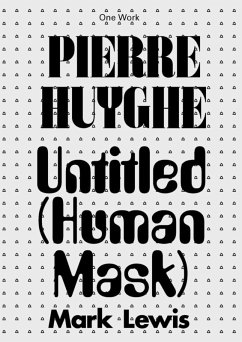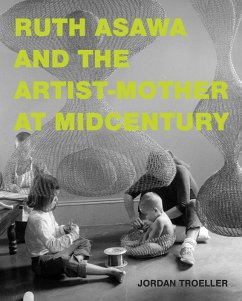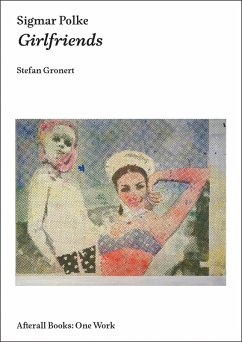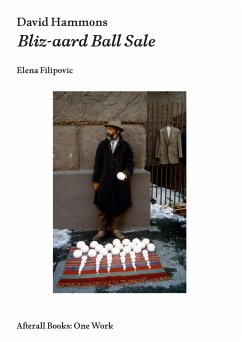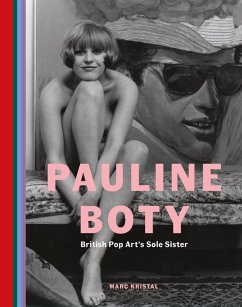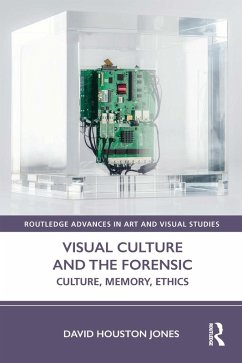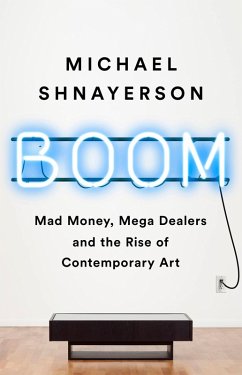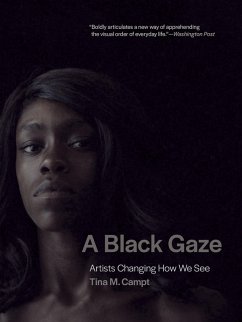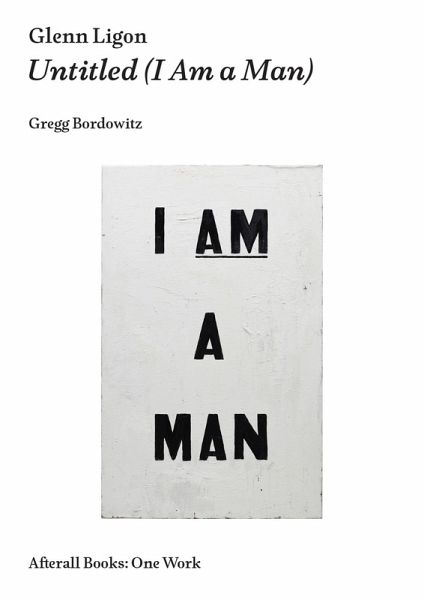
Glenn Ligon (eBook, ePUB)
Untitled (I Am a Man)

PAYBACK Punkte
6 °P sammeln!
An illustrated examination of Glenn Ligon's iconic Untitled (I Am a Man) (1988)a quotation, an appropriated text turned into an artifact.The iconic work Untitled (I Am a Man) (1988) by the important contemporary American artist Glenn Ligon is a quotation, an appropriated text turned into an artifact. The National Gallery of Art in Washington presents the work as a representationa signifierof the actual signs carried by 1,300 striking African American sanitation workers in Memphis, made famous by Ernest Withers' 1968 photographs. In this illustrated study of the work, Gregg Bordowitz takes the ...
An illustrated examination of Glenn Ligon's iconic Untitled (I Am a Man) (1988)a quotation, an appropriated text turned into an artifact.
The iconic work Untitled (I Am a Man) (1988) by the important contemporary American artist Glenn Ligon is a quotation, an appropriated text turned into an artifact. The National Gallery of Art in Washington presents the work as a representationa signifierof the actual signs carried by 1,300 striking African American sanitation workers in Memphis, made famous by Ernest Withers' 1968 photographs. In this illustrated study of the work, Gregg Bordowitz takes the National Gallery's presentation as his starting point, considering the museum's juxtaposition of Untitled (I Am a Man) and the ca. 1935 sculpture, Schoolteacher, by William Edmondson, and the relation of the two terms, markers and signs.
After closely examining the canvas itself, its textures, brushwork, and structure, Bordowitz presents a theoretical framework that draws on the work of American philosopher Charles Sanders Peirce and his theory of Firstness, Secondness, and Thirdness. He makes a case for Thirdness as a function, operation, or law of meaning-making, not limited by the gender, age, ethnicity, race, class, or personal history of the viewer. Bordowitz goes on to examine Ligon's work in terms of the representation of self, race, and gender, focusing on three series: Profile Series (199091), Narratives, and Runaways (both 1993). He cites such historical figures as Sojourner Truth and her famous 1851 speech, Ain't I a Woman? as well as influences ranging from Bo Diddley's 1955 song, I'm a Man to the cultural theories of Stuart Hall.
The iconic work Untitled (I Am a Man) (1988) by the important contemporary American artist Glenn Ligon is a quotation, an appropriated text turned into an artifact. The National Gallery of Art in Washington presents the work as a representationa signifierof the actual signs carried by 1,300 striking African American sanitation workers in Memphis, made famous by Ernest Withers' 1968 photographs. In this illustrated study of the work, Gregg Bordowitz takes the National Gallery's presentation as his starting point, considering the museum's juxtaposition of Untitled (I Am a Man) and the ca. 1935 sculpture, Schoolteacher, by William Edmondson, and the relation of the two terms, markers and signs.
After closely examining the canvas itself, its textures, brushwork, and structure, Bordowitz presents a theoretical framework that draws on the work of American philosopher Charles Sanders Peirce and his theory of Firstness, Secondness, and Thirdness. He makes a case for Thirdness as a function, operation, or law of meaning-making, not limited by the gender, age, ethnicity, race, class, or personal history of the viewer. Bordowitz goes on to examine Ligon's work in terms of the representation of self, race, and gender, focusing on three series: Profile Series (199091), Narratives, and Runaways (both 1993). He cites such historical figures as Sojourner Truth and her famous 1851 speech, Ain't I a Woman? as well as influences ranging from Bo Diddley's 1955 song, I'm a Man to the cultural theories of Stuart Hall.
Dieser Download kann aus rechtlichen Gründen nur mit Rechnungsadresse in A, B, BG, CY, CZ, D, DK, EW, E, FIN, F, GR, HR, H, IRL, I, LT, L, LR, M, NL, PL, P, R, S, SLO, SK ausgeliefert werden.




